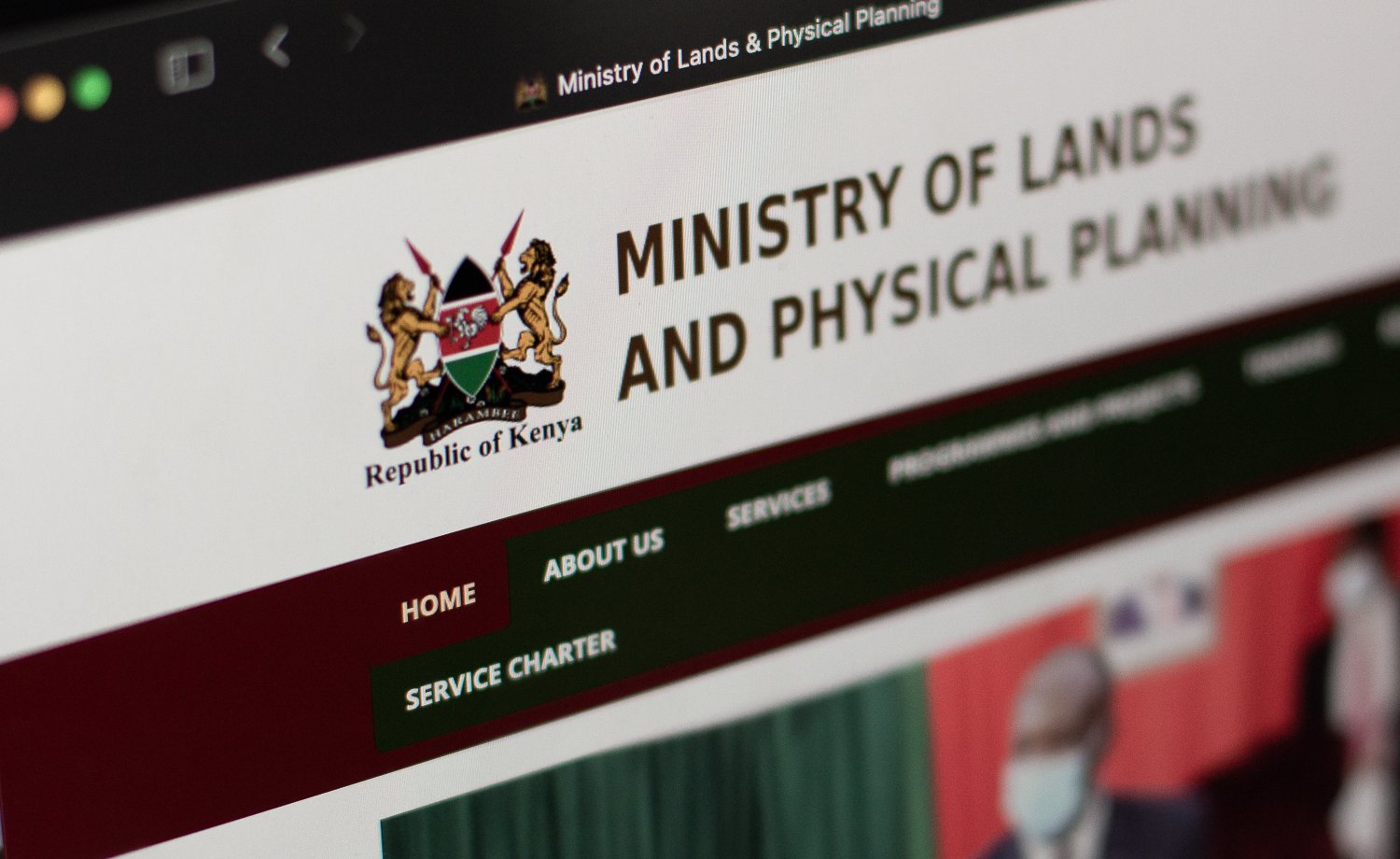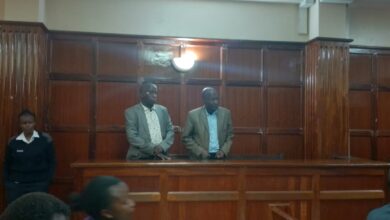Twelve registrars from the Lands Ministry have been implicated in a significant corruption investigation by the EACC.
12 Lands Ministry Registrars Exposed in Major EACC Corruption Probe

Corruption within Kenya’s Ministry of Lands has reached alarming levels, with 41 land registrars now under investigation by the Ethics and Anti-Corruption Commission (EACC).
Among the accused are Samuel Langat, a notorious officer at the Survey of Kenya, and several others linked to dubious land deals.
Allegations include double allocations, tax evasion, and the unauthorized allocation of private land.
This article uncovers the faces behind the faceless cartel terrorizing the Ministry of Lands and highlights the urgent need for reform to protect land ownership in Kenya.

The 12 Ministry of Lands Registrars Under EACC Radar
In a shocking revelation, 41 land registrars at the Ministry of Lands are now under investigation by the Ethics and Anti-Corruption Commission (EACC).
Among them, a notorious figure named Samuel Langat, an officer based at the Survey of Kenya, stands out.
This investigation uncovers a web of corruption involving land officials who engage in dubious deals that rob Kenyans of their rightful land.
The EACC has identified these registrars for various illegal activities, including double allocations of land, facilitating tax evasion through stamp duty manipulation, and allocating private land belonging to individuals.
Authorities have linked these registrars to the accumulation of unexplained wealth, raising serious questions about their integrity and accountability.
The Corruption Network
Several names have surfaced in the EACC probe, painting a grim picture of corruption within the Ministry. Notable among them are:
- Suzzane Vusha (Nairobi)
- Francis Kariuki (Eldoret)
- Nicholas Mochage (Nairobi)
- Steve Mokaya (Kwale)
- Charles Ngetich (Nairobi)
- Monocah Bor (Bomet)
- Kumuyu Wang’ombe (Nairobi)
- Erick Nyamu (Nakuru)
- Sheila Mwai (Eldoret)
- Felix Nyakundi (Thika)
Authorities have implicated Samuel Langat from the Survey of Kenya as well. They accuse these individuals of being part of a corrupt cartel that manipulates the land allocation process for personal gain.
12 Lands Ministry Registrars and the Cartel in Control
A disturbing trend has emerged where a significant number of land registrars in Kenya’s 47 counties are from the Kisiis and Kikuyus communities.
This demographic concentration raises eyebrows, especially against the backdrop of the Ministry of Lands blaming “corrupt cartels” for the theft of 367 title deeds.
In a gazette notification dated September 26, 2024, the State Printer revealed the alarming theft of 367 title deeds, which remain untraceable.
This revelation triggered panic among thousands of Kenyans, who rushed to verify their land documents for any discrepancies.
The government quickly denied the allegations, stating that no title deeds had been stolen from the government printer.
Instead, the Ministry clarified that the stolen items were the security papers used for printing the title deeds. Authorities have already arrested one officer at the government printer in connection with the theft.
The Ministry’s Defense
The Ministry of Lands, Public Works, Housing, and Urban Development issued a statement reassuring the public that the stolen materials were merely printing papers and not the title deeds themselves.
These papers are essential for the secure production of land documents, containing security features only found at the government printer.
“We would like to assure Kenyans that what was stolen are not title deeds, but the papers used for printing titles,” the Ministry stated.
They emphasized that these papers become title deeds only after being filled with ownership details and stamped by the registrar, following all necessary procedures.
The Ministry highlighted that the thieves intended to use the stolen papers to produce counterfeit titles, aiming to defraud unsuspecting individuals of their hard-earned money.
This situation underscores the urgent need for the Ministry to tighten its mechanisms against land fraud and work closely with security agencies to combat the corrupt practices that have plagued the sector.
Combatting Corruption
In light of these troubling developments, the Ministry of Lands has ramped up its anti-corruption efforts. They have pledged to enhance their systems for detecting and preventing land fraud.
By collaborating with security agencies, they aim to thwart the tactics that corrupt officials and cartels have traditionally employed.
These proactive measures are crucial in restoring confidence in the Ministry’s operations and safeguarding Kenyans’ rights to their land.
Wrapping Up
The revelations about the Ministry of Lands registrars under EACC investigation expose a deep-rooted culture of corruption that has undermined land ownership in Kenya.
As the public watches closely, the actions taken against these corrupt officials will be a litmus test for the government’s commitment to transparency and justice.
The fight against land fraud must continue with renewed vigor. It is vital for Kenyans to remain vigilant and report any suspicious activities related to land transactions.
Only through collective efforts can we dismantle the faceless cartel terrorizing the Ministry of Lands and restore integrity to land management in Kenya.




